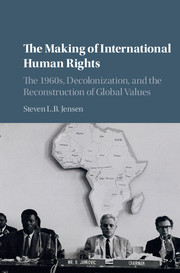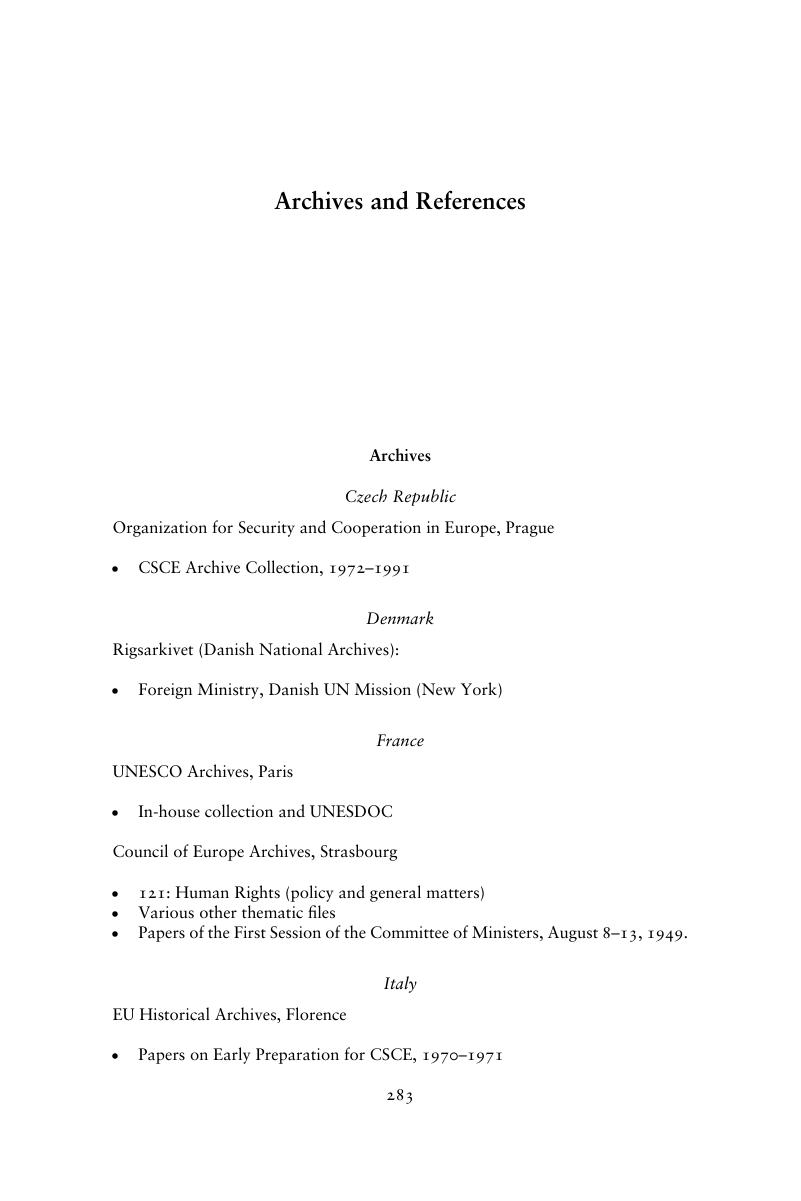 The Making of International Human Rights
The Making of International Human Rights Book contents
- The Making of International Human RightsThe 1960s, Decolonization and the Reconstruction of Global Values
- Human Rights in History
- The Making of International Human Rights
- Copyright page
- Contents
- Book part
- Negotiating universality – an introduction
- 1 “Power carries its own conviction”
- 2 “The problem offreedom”
- 3 From Jamaicawith law
- 4 The making of a precedent
- 5 “The hymn of hate”
- 6 “So bitter a year for human rights”
- 7 “To cope with the flux of the future”
- 8 The presence of thedisappeared, 1968–1993
- Conclusion
- Archives and References
- Index
- References
Archives and References
Published online by Cambridge University Press: 05 February 2016
- The Making of International Human RightsThe 1960s, Decolonization and the Reconstruction of Global Values
- Human Rights in History
- The Making of International Human Rights
- Copyright page
- Contents
- Book part
- Negotiating universality – an introduction
- 1 “Power carries its own conviction”
- 2 “The problem offreedom”
- 3 From Jamaicawith law
- 4 The making of a precedent
- 5 “The hymn of hate”
- 6 “So bitter a year for human rights”
- 7 “To cope with the flux of the future”
- 8 The presence of thedisappeared, 1968–1993
- Conclusion
- Archives and References
- Index
- References
Summary

- Type
- Chapter
- Information
- The Making of International Human RightsThe 1960s, Decolonization, and the Reconstruction of Global Values, pp. 283 - 300Publisher: Cambridge University PressPrint publication year: 2016
